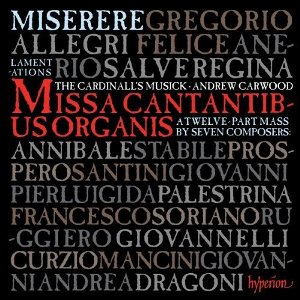Breaking out of the Baroque
Sir John Eliot Gardiner - The Complete Erato Recordings
Sir John Eliot Gardiner
Erato 5054197205514
What feels like a very short decade ago James Jolly celebrated Sir John Eliot Gardiner's 70th birthday in this magazine and reflected that Gardiner was ‘the first conductor to follow a very modern trajectory’ also noting that ‘the alignment of Gardiner’s career with the Golden Years of the recording industry allowed him to record extensively.’ Both points are amply reflected in this handsome boxed set of Gardiner’s complete Erato recordings which span a period of rapid growth in his recording activities throughout the 1980s. Sixty four discs from 1976 to 1990--and one outlier from 1995 (England, my England: music from the soundtrack to Tony Palmer's film about the story of Henry Purcell)--are testament to an extraordinarily impressive musical appetite and insatiable curiosity, and all this whilst he was also recording for DG Archiv Production (among others). The set also includes three Gramophone award winners: Handel, Dixit Dominus 1978; Handel, L'Allegro, il Penseroso ed il Moderato 1980; and Leclair, Scylla et Glaucus 1988.
The Monteverdi Choir and Monteverdi Orchestra were, of course, long established by the start of this relationship with Erato, but among the unique moments this collection captures are the beginning of period instrument ensemble The English Baroque Soloists founded in 1978 and the five years (1983 to 1988) when Gardiner was Music Director of the Opéra National de Lyon where he founded an entirely new orchestra and produced a particularly astounding account of Chabrier's L'Étoile in 1984 when the Lyon orchestra was just a year old, and there followed several more treasures from the French repertoire. Throughout this collection The Monteverdi Choir are a unifying presence, collaborating with all three orchestras. Theirs is a choral, rather than consort, sound characterised by a superbly clear sense of line and reliably warm tone. Talking to Alan Blythe for Gramophone in 1975 Gardiner reflected: 'My ideas about Monteverdi developed really out of a reaction to the precocity of King's [chapel choir, Cambridge] I saw their musical abilities but realised they were buried in a 19th-century tradition. I felt it was a challenge to create a choir that could sound more Mediterranean; hence the Monteverdi Choir was formed.'
Yet Gardiner’s Erato relationship stops short of his next big project: the Orchestre Révolutionnaire et Romantique founded in 1989. Erato may not have recorded this group, but you can feel Gardiner's appetite for Romantic music already brewing in these Erato years, particularly with his fine accounts of Schubert and Bizet symphonies with the Orchestre de l'Opera de Lyon. I wonder if Gardiner was one of the main people to cross Laurence Dreyfus's mind when he memorably described the early music movement as 'casting a covetous glance at the 19th century' in The Musical Quarterly back in 1984?
[...]
For the full text of this review please see Gramophone magazine (July 2023)
Sir John Eliot Gardiner
Erato 5054197205514
What feels like a very short decade ago James Jolly celebrated Sir John Eliot Gardiner's 70th birthday in this magazine and reflected that Gardiner was ‘the first conductor to follow a very modern trajectory’ also noting that ‘the alignment of Gardiner’s career with the Golden Years of the recording industry allowed him to record extensively.’ Both points are amply reflected in this handsome boxed set of Gardiner’s complete Erato recordings which span a period of rapid growth in his recording activities throughout the 1980s. Sixty four discs from 1976 to 1990--and one outlier from 1995 (England, my England: music from the soundtrack to Tony Palmer's film about the story of Henry Purcell)--are testament to an extraordinarily impressive musical appetite and insatiable curiosity, and all this whilst he was also recording for DG Archiv Production (among others). The set also includes three Gramophone award winners: Handel, Dixit Dominus 1978; Handel, L'Allegro, il Penseroso ed il Moderato 1980; and Leclair, Scylla et Glaucus 1988.
The Monteverdi Choir and Monteverdi Orchestra were, of course, long established by the start of this relationship with Erato, but among the unique moments this collection captures are the beginning of period instrument ensemble The English Baroque Soloists founded in 1978 and the five years (1983 to 1988) when Gardiner was Music Director of the Opéra National de Lyon where he founded an entirely new orchestra and produced a particularly astounding account of Chabrier's L'Étoile in 1984 when the Lyon orchestra was just a year old, and there followed several more treasures from the French repertoire. Throughout this collection The Monteverdi Choir are a unifying presence, collaborating with all three orchestras. Theirs is a choral, rather than consort, sound characterised by a superbly clear sense of line and reliably warm tone. Talking to Alan Blythe for Gramophone in 1975 Gardiner reflected: 'My ideas about Monteverdi developed really out of a reaction to the precocity of King's [chapel choir, Cambridge] I saw their musical abilities but realised they were buried in a 19th-century tradition. I felt it was a challenge to create a choir that could sound more Mediterranean; hence the Monteverdi Choir was formed.'
Yet Gardiner’s Erato relationship stops short of his next big project: the Orchestre Révolutionnaire et Romantique founded in 1989. Erato may not have recorded this group, but you can feel Gardiner's appetite for Romantic music already brewing in these Erato years, particularly with his fine accounts of Schubert and Bizet symphonies with the Orchestre de l'Opera de Lyon. I wonder if Gardiner was one of the main people to cross Laurence Dreyfus's mind when he memorably described the early music movement as 'casting a covetous glance at the 19th century' in The Musical Quarterly back in 1984?
[...]
For the full text of this review please see Gramophone magazine (July 2023)
.jpg)


Comments
Post a Comment